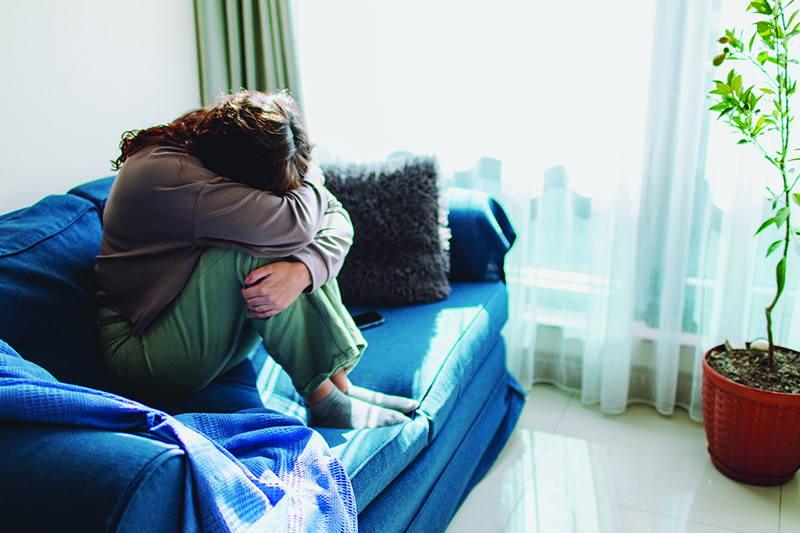Could You Be Experiencing Caregiver PTSD?


Caregiver PTSD is, surprisingly, the most common form of post-traumatic stress disorder.
When you think of PTSD (post-traumatic stress disorder), your mind might conjure images of soldiers returning from battle or individuals who’ve faced extreme life-threatening events. While PTSD is certainly linked to those experiences, it isn’t confined to them. In fact, PTSD can develop after any deeply distressing event—including providing care for a family member. Surprising, isn’t it? Caregiver PTSD is a significant yet often overlooked issue, as the focus is typically placed on the person receiving care rather than the caregiver’s emotional and mental health.
Recognizing the signs of caregiver PTSD is essential for maintaining both your health and your ability to care for your loved one. The red flags for caregiver PTSD are unique and can include the following symptoms:
- Apathy: Feeling emotionally numb, disconnected, or detached from loved ones is a common sign. This is often tied to compassion fatigue.
- Anxiety: A heightened sense of worry about your family member’s well-being, especially at night, may disrupt sleep and lead to night terrors.
- Flashbacks: Reliving traumatic caregiving moments with the same intensity as when they occurred can be emotionally draining.
- Pain: This can manifest as both physical and emotional pain, such as chronic headaches, stomach issues, or feelings of hopelessness.
Why Are Caregivers at Risk for PTSD?
Several factors combine to create the perfect storm for caregiver PTSD:
- Overwhelming responsibilities: Caregivers often juggle a wide range of tasks, from daily care routines to navigating complex medical and financial decisions.
- Grief and loss: Witnessing a loved one’s health decline, losing the relationship dynamic you once shared, or adjusting to a new lifestyle can all contribute to emotional strain.
- Crisis situations: Repeated hospitalizations, emergency events, or sudden medical decisions can create a heightened state of stress.
- Family dynamics: Caregiving often brings out complicated emotions such as guilt, resentment, or helplessness, which can strain relationships and intensify stress levels.
Steps to Take if You Suspect Caregiver PTSD
If you think you might be experiencing caregiver PTSD, the most important step is to seek help. Start by consulting your primary care doctor to discuss your symptoms and rule out any other medical conditions that might be contributing to physical discomfort.
Next, connect with a therapist experienced in PTSD treatment. Options such as Eye Movement Desensitization Reprocessing (EMDR) therapy, as well as individual, group, or family counseling, can provide meaningful relief and strategies for managing symptoms.
Another crucial step is taking regular breaks from caregiving. Share your struggles with family members or friends and ask for their support. Caregiving is not meant to be a one-person role, and letting others step in can benefit both you and your loved one. Social interaction with others can also provide your family member with emotional stimulation and companionship.
How Respite Care Can Help
Professional respite care is a lifeline for family caregivers experiencing burnout or PTSD. In-home care services allow you to step away from your caregiving responsibilities for a few hours—or longer—while ensuring your loved one receives high-quality care. These breaks provide the time and space you need to recharge and focus on your own well-being, which is essential for continuing to provide the best care for your family member.
At Hired Hands Homecare, we understand the unique challenges caregivers face. Our compassionate respite care services are here to offer you peace of mind while giving your loved one the personalized care and attention they deserve. Reach out to us today at (866) 940-4343 to learn more about our respite care services in San Rafael, Petaluma, Novato, and throughout the Bay Area.








Leave a Reply